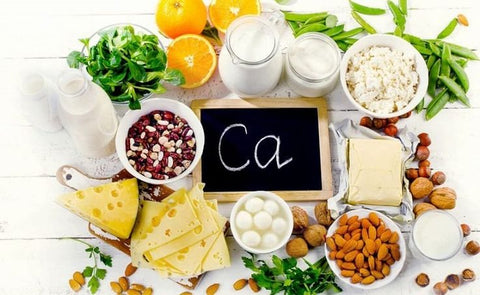Due to temperature changes, the arrival of winter and even the use of air conditioning or heating, we are exposed to a possible cold. To prevent it, it is important to have a healthy and balanced diet, do physical exercise to keep fit, as well as avoid sudden changes in temperature and air currents. All this will help us to keep our body's defenses in optimal condition and avoid any type of infection such as a cold.
There's no cure for the common cold. But what about remedies that claim to make you feel better faster? Find out which ones work and which ones don't.
Nothing can cure a cold. But some remedies can help relieve your symptoms and keep you from feeling so bad.
Cold Remedies That Work
If you catch a cold, it will probably last a week or two. That doesn't mean you should feel down.
Stay hydrated . Water, juice, soup, or warm water with lemon and honey help loosen congestion and prevent dehydration. Avoid alcohol, coffee, and caffeinated soft drinks, which can make dehydration worse.
Rest . Your body needs rest to heal.
Soothe a sore throat . A saltwater gargle may temporarily soothe a sore or irritated throat. You can also try ice chips, sore throat sprays, lozenges, or hard candy. Use caution when giving lozenges or hard candy to children because they may choke on them. Do not give lozenges or hard candy to children under 6 years old.
Combat nasal congestion . Over-the-counter saline nose sprays and drops can help relieve nasal congestion and stuffiness.
For infants, experts recommend placing several drops of saline solution into one nostril and then gently suctioning that nostril with a rubber bulb syringe. Nasal sprays containing saline solution can be used for older children.
Pain relief . Adults can take acetaminophen, ibuprofen, or aspirin. You should consult your GP or pharmacist before taking any medication.

Sip warm liquids . Sipping warm liquids, such as chicken soup, tea, or warm fruit juice, is a cold remedy used in many cultures and may have a soothing effect and relieve congestion by increasing mucus flow.
Eat honey. Honey can help cough in adults and children over one year old. Try it with warm milk.
Humidify the air. A vaporizer or cool-mist humidifier can add moisture to your home, which may help relieve stuffiness. Change the water daily, and clean the unit according to the manufacturer's instructions.
Over-the-counter cold and cough medications (decongestants, antihistamines, and pain relievers) may offer some relief from symptoms. However, they won't prevent a cold or reduce its duration, and most of them have some side effects.
Take your cold medicines only as directed, as some cold medicines contain multiple ingredients, such as a decongestant plus a pain reliever, so read the labels on the cold medicines you take to make sure you are not taking too much of any one medicine.

Some home remedies
If you do end up getting infected, to relieve the symptoms and have a speedy recovery, there are a series of natural remedies for cough, sore throat, flu and colds, all of them harmless, natural and without a prescription.
Honey and lemon
Lemon provides Vitamin C and honey is a natural antibiotic, which will help you soothe an uncomfortable sore throat and annoying cough, and also has antimicrobial (a substance that eliminates microorganisms such as bacteria, fungi or parasites) and antioxidant properties.
We can choose between drinking a hot infusion of honey and lemon, mixing the two ingredients with any infusion or taking a simple teaspoon of honey with the juice of half a lemon.
Ginger
Thanks to the excellent properties of ginger, it is not only good for its enormous source of antioxidants, and for promoting digestion, but it also helps recover from a cold thanks to its high concentration of Vitamin C.
Mix a teaspoon of chopped fresh ginger in a cup of boiling water to prepare an infusion. You can also add honey and a little lemon.
Elder
This plant has natural medicinal properties for treating colds, flu, allergies, and even wounds and bruises. Almost everything from this plant can be used, from the berries to the flowers and leaves.
With an infusion of elderberry bark and berries, we will be able to relieve our body's fatigue thanks to the salicylic acid contained in this tree, which helps to mitigate pain and fever. It also contains sambucol, which fights infection from the flu virus. The use of plant material from this tree is also quite useful and widespread in terms of kidney conditions and weight loss diets due to its astringent and purifying properties for fluid retention.

Eucalyptus vaporizations
Its traditional use as a natural remedy for respiratory diseases such as asthma, colds, flu, coughs, catarrh and sinusitis has made it one of the most widely used plant products. Eucalyptus contains essential oils such as cineole, flavonoids and tannins that provide expectorant, analgesic, antimicrobial, antiseptic and decongestant action.
Eucalyptus vapor is a natural remedy for nasal congestion, mucus, tonsillitis and bronchitis, because it helps to clear our nasal passages and to breathe better. It is exceptional for alleviating throat irritation and opening the airways.
To prepare this remedy, we must boil water in a pot along with some eucalyptus leaves. We will wait for the aromas to be released and carefully remove the pot from the heat and approach it to breathe in its vapours.
Soups
A good chicken soup like the ones our grandmothers made us when we were children will make you feel better because it reduces congestion and lubricates the throat, thus relieving irritation. Chicken broth also helps heal the inner lining of the intestine and provides a large amount of nutrients to our body, which is interesting due to the proliferation of the imbalance of the intestinal flora due to poor nutrition in general caused by excess sugars and saturated fats.
Green tea
Green tea contains antioxidants, which are essential substances for reducing the risk of various types of cancer and preventing premature skin aging. It also contains catechins, substances that help fight and even prevent the flu and regulate cholesterol levels in the blood, which can reduce the risk of suffering from some type of heart disease. To take full advantage of its benefits, it is recommended to gargle to take better advantage of the antiviral effects of this tea.

Although they are usually mild, colds can make you feel unwell. Rest, drink fluids and keep the air around you humid. Remember to wash your hands frequently.
Cold Remedies That Don't Work
The list of ineffective cold remedies is long… some of the most common ones that don't work include:
Antibiotics . These drugs attack bacteria, but they don't work against cold viruses. Avoid asking your doctor for antibiotics to treat a cold or using old antibiotics you have on hand. You won't get better any faster, and improper use of antibiotics contributes to serious problems with antibiotic-resistant bacteria growth.
Over-the-Counter Cold and Cough Medicines for Young Children . Over-the-counter cold and cough medicines can cause serious and even life-threatening side effects in children. Talk to your child's doctor before giving any medicine.

Cold remedies with conflicting evidence
Despite many studies, some folk remedies are still not supported by the scientific community. Here is an update on some common alternative remedies:
Vitamin C. Taking vitamin C doesn't seem to help the average person prevent colds. However, some studies have found that taking vitamin C before cold symptoms start may shorten the duration of symptoms. Vitamin C may benefit people who are at high risk for catching a cold because of frequent exposure, such as children who attend group daycare during the winter.
Echinacea. Results from studies on whether echinacea prevents or shortens colds are mixed. Some studies show no benefit. Others show a mild reduction in the severity and duration of cold symptoms when taken during the early stages of a cold. The different types of echinacea used in different studies may have contributed to the mixed results.
Zinc. Several studies have suggested that zinc supplements may reduce the duration of a cold. But research has yielded conflicting results about zinc and colds. Some show that zinc lozenges reduce the duration of a cold by about a day, especially when taken within 24 to 48 hours of the first signs and symptoms of a cold.
Zinc also has potentially harmful side effects.

https://www.bbc.com/mundo/vert-fut-46451320
-
https://www.defensa.gob.es/isfas/Galerias/noticias/saber/ficheros/20101013_PARASABER.pdf
https://www.salud.mapfre.es/cuerpo-y-mente/naturopathy/remedios-contra-el-resfriado-y-la-gripe/
https://www.sabervivirtv.com/medicina-general/siete-remedios-naturales-para-aliviar-gripes-resfriados_1045
https://www.mayoclinic.org/es/diseases-conditions/common-cold/in-depth/cold-remedies/art-20046403
https://www.vistafarma.com/blog/remedios-naturales-para-el-resfriado/




Comments (0)
There are no comments for this article. Be the first one to leave a message!